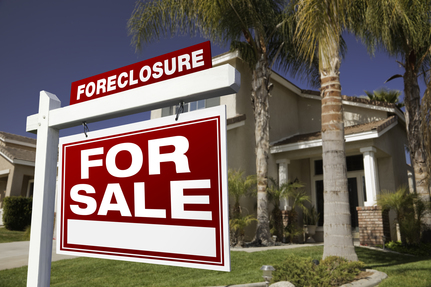

Blog
01/14/2025
Purchasing a foreclosed property is tempting since it can bring about a great return on investment. However, it can be risky. Learn what not to do when buying a foreclosed property through this post by Elliott & Waldron Abstract Company in Columbus, TX.

Buying a foreclosed property can be a rewarding investment with the potential for great deals, but it also comes with unique challenges. Without careful planning and informed decisions, you could face unexpected costs, legal issues, or prolonged repairs. Here are some common mistakes that will teach you what not to do when buying a foreclosed property to ensure a smoother, more successful investment.
Call Elliott & Waldron Abstract Company in Columbus, TX at (979) 732-2213 to work with a title services company that can help you through complex real estate transactions.
What Not to Do When Buying a Foreclosed Property
1. Skipping the Property Inspection
Foreclosed homes are typically sold “as-is,” meaning you’re purchasing the property in its current condition without any repairs or updates from the seller. These properties are often in various states of disrepair due to neglect, lack of maintenance, or even intentional damage by former owners. Common issues include plumbing or electrical problems, structural damage, mold, or pest infestations. Foreclosed homes may also have been vacant for extended periods, which can lead to further issues.
Skipping an inspection can lead to costly surprises, so it’s essential to hire a certified inspector to get a full assessment. While you may need to pay for the inspection out-of-pocket, it’s a small price compared to the potential cost of unanticipated repairs.
2. Not Budgeting for Repairs
Foreclosed properties often require a significant amount of work to restore them to a livable or sellable condition. Failing to budget accurately for repairs is a common mistake, especially if you underestimate the scope or cost of necessary improvements. In addition to visible issues, there may be hidden problems like wiring issues, outdated HVAC systems, or structural damage.
Create a realistic budget that covers both the obvious repairs and a cushion for unexpected expenses. Consulting with a contractor for an initial estimate can help you set a more accurate budget and determine if the property is financially viable.
3. Ignoring a Title Search
A title search is crucial when purchasing a foreclosed property. Foreclosed homes can come with various liens, unpaid taxes, or legal claims attached to them, such as unpaid HOA fees, second mortgages, or contractor liens. If these issues are not addressed, they can transfer to you as the new owner, leaving you responsible for resolving them.
Skipping a title search or failing to secure title insurance could lead to costly legal battles or surprise debts. Working with a title company or real estate attorney will ensure the property’s title is clear and help you avoid inheriting any encumbrances.
Never go into a real estate transaction without a title search! Call Elliott & Waldron Abstract Company in Columbus, TX at (979) 732-2213 for all your title services needs.
4. Failing to Secure the Right Financing
Financing foreclosed properties can be more complex than standard real estate transactions. Some foreclosed homes, especially those in poor condition, may not qualify for traditional loans, meaning buyers need to explore alternative financing options. For example, some foreclosed properties require cash offers due to their condition.
Make sure to understand your financing options in advance, whether through conventional financing, FHA 203(k) renovation loans, or cash if necessary. Being prepared with the right financing can streamline the process and ensure that you can close the deal.
5. Rushing the Purchase Without Due Diligence
The excitement of finding a great deal on a foreclosed property can lead some buyers to rush through the purchase process. However, skipping due diligence can have significant repercussions. In addition to an inspection and title search, research the neighborhood and market conditions.
Understand the property’s history, comparable prices in the area, and potential resale value after renovations. Rushing can cause you to overlook important details and may result in a property that’s more trouble than it’s worth.
6. Overestimating Your Ability to Handle Renovations
Foreclosed homes can require extensive repairs and updates, and not all buyers are prepared for the time, money, and effort involved. Underestimating the scope of renovations can lead to frustration, stress, and financial strain.
If you’re not experienced in managing large renovation projects, consider working with a contractor or even re-evaluating the investment. Being honest with yourself about the time and skills required will help you avoid overwhelming renovation demands.
Call Elliott & Waldron Abstract Company in Columbus, TX at (979) 732-2213 for more information on how the right title services can help you purchase a foreclosed property safely.
COPYRIGHT © 2024 STEWART TITLE GUARANTY COMPANY
ALL RIGHTS RESERVED.

